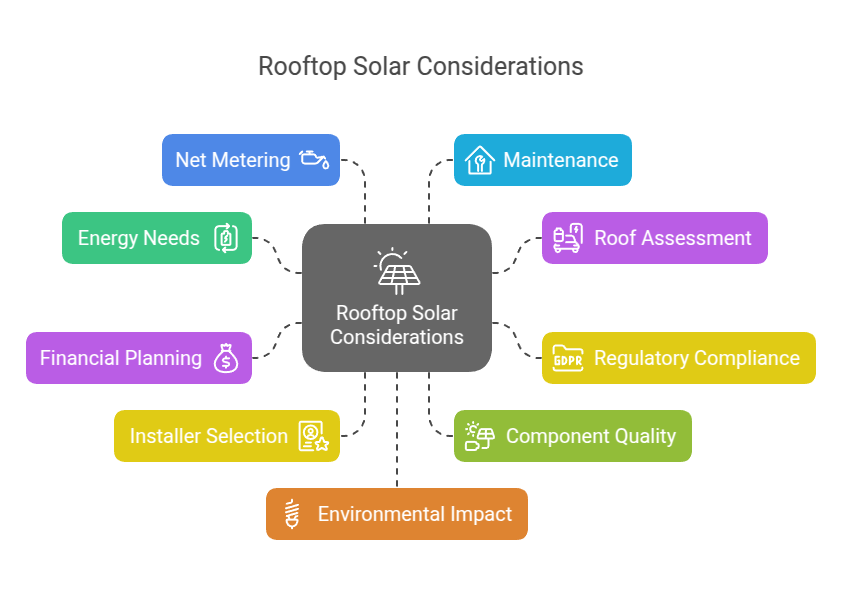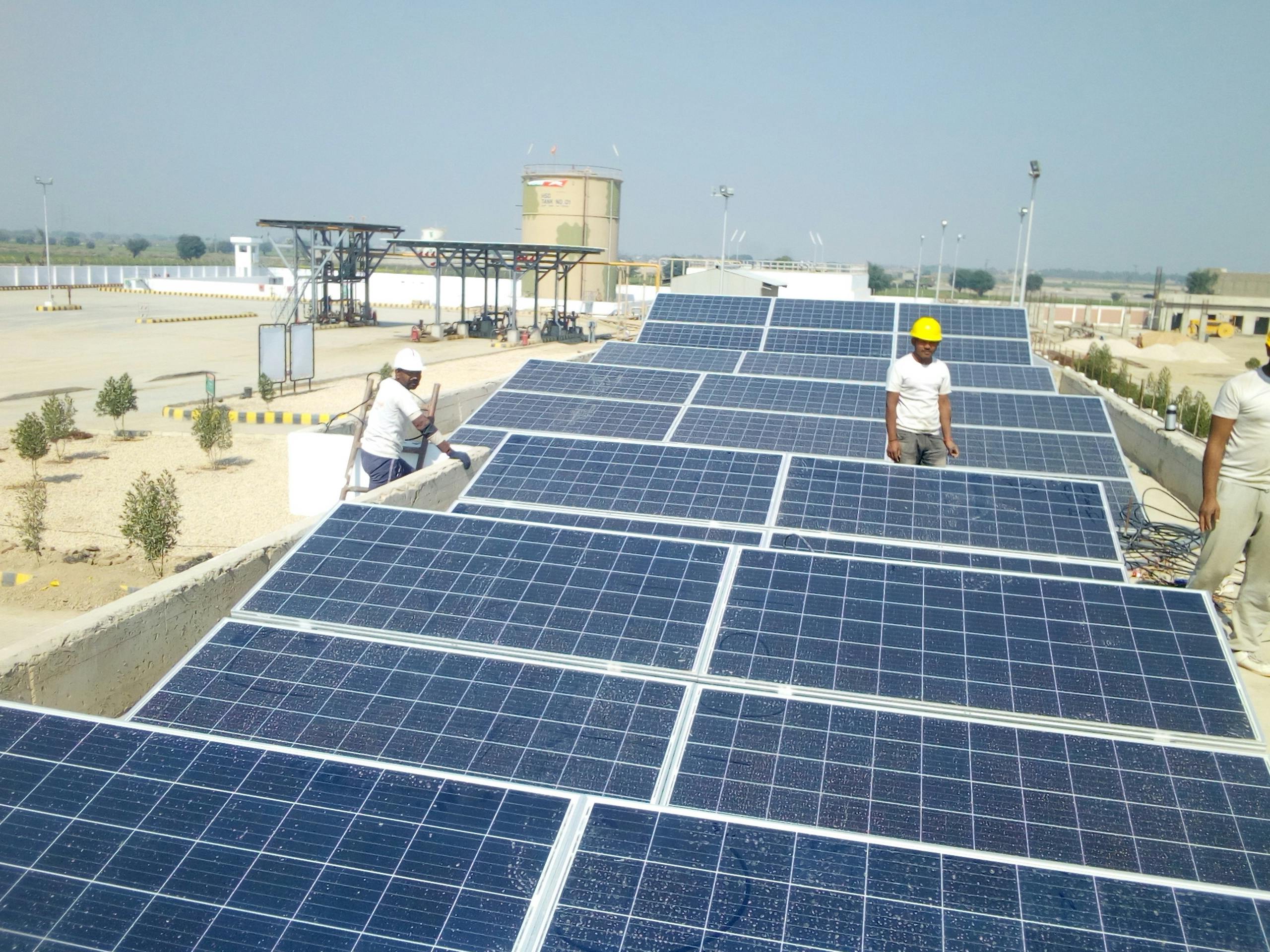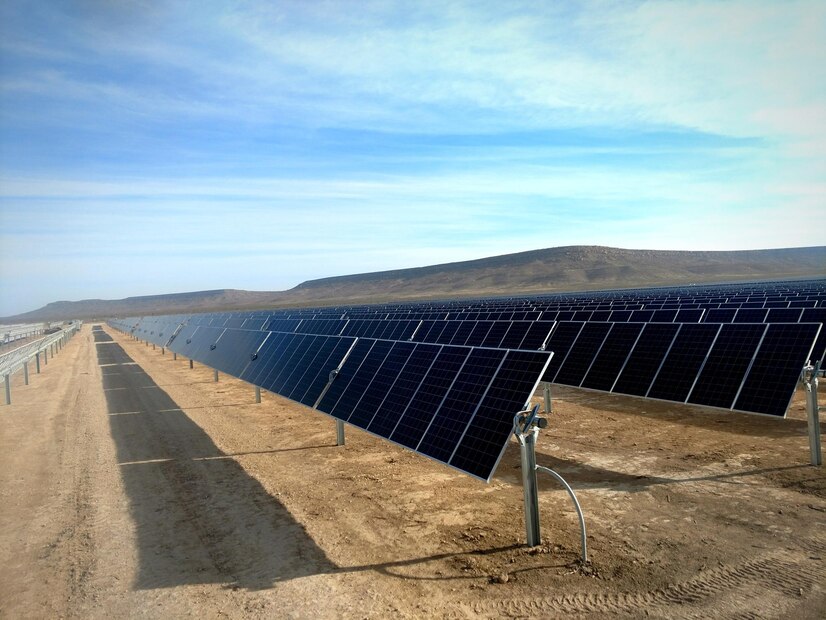As India embraces sustainable living, the installation of rooftop solar panels at Commercial and Industrial premises have been gaining momentum and now for homes with a special focus on Prime Minister Modi’s Pradhan Mantri Suryoday Yojna (PMSY), promising not just energy efficiency but also economic benefits.
Here are 10 crucial considerations to keep in mind before venturing into the world of Rooftop Solar:
1. Understanding Energy Needs: Assess your household’s energy consumption patterns to determine the appropriate size of the rooftop solar system. This ensures optimal utilization and cost-effectiveness.
2. Roof Assessment: Conduct a thorough inspection of your roof’s structural integrity and sun exposure. A stable and unshaded area is essential for maximizing solar energy production.
3. Regulatory Compliance: Familiarize yourself with local regulations and permits required for rooftop solar installations. Compliance ensures a smooth and legally sound process.
4. Financial Planning: Explore available government incentives, subsidies, and financing options to make the installation financially viable. PM Modi’s Pradhan Mantri Suryoday Yojna is a notable scheme offering significant benefits for eligible households.
5. Choose Reputable Installers: Engage with certified and experienced solar installation professionals. A reputable installer ensures proper setup, minimizing future maintenance issues.
6. Quality Components: Invest in high-quality solar panels, inverters, and batteries. Quality components enhance the system’s efficiency and longevity, providing a better return on investment.
7. Net Metering Understanding: Learn about net metering policies in your region. This mechanism allows you to sell excess energy back to the grid, potentially offsetting your electricity bills.
8. Maintenance Considerations: Understand the maintenance requirements of your solar system. Regular checks and timely repairs are essential to ensure consistent performance.
9. Environmental Impact: Consider the environmental benefits of switching to solar energy. Rooftop solar reduces your carbon footprint, contributing to a cleaner and greener environment.
10. Long-term Vision: Adopting rooftop solar aligns with the larger vision of self-reliance in energy, a goal emphasized by PM Modi’s PMSY. Supporting such initiatives contributes to the nation’s energy independence.

PM Modi’s Pradhan Mantri Suryoday Yojna (PMSY)
Under the PMSY scheme, 10 million households in India are set to receive rooftop solar installations. This ambitious initiative aims not only to alleviate electricity bills for the poor and middle class but also to make India self-reliant in the energy sector. By empowering households with solar energy solutions, Pradhan Mantri Suryoday Yojna plays a crucial role in promoting sustainability and fostering energy security.
Embracing solar panels is a transformative step towards a sustainable and self-reliant energy future for India. As you embark on this journey, consider these ten vital factors to ensure a seamless and rewarding experience. The PMSY scheme adds a layer of economic empowerment, making rooftop solar not just an individual choice but a collective step towards a brighter and cleaner tomorrow.
Closing the blog on a high note, it’s worth mentioning that we at Hartek Group have made significant contributions to the rooftop solar landscape in India. With a commendable 100 MW+ installations across the Commercial and Industrial (C&I) segment, we have been instrumental in shaping the solar revolution.
The Golden Temple Rooftop Solar Project stands as a testament to Hartek Group’s commitment to sustainable energy. Additionally, our collaboration with Kandhari Beverages, one of the largest bottlers for Coca-Cola in India, Bikaji and Trident among other giants showcases the group’s prowess in implementing rooftop solar solutions across key industries.
In conclusion, as you embark on your rooftop solar journey, remember that a well-informed decision can lead to not only personal benefits but also contribute to India’s larger vision of a self-reliant and sustainable energy future.
Frequently Asked Questions
-
What is Rooftop Solar and how does it work?
This systems use solar panels to capture sunlight and convert it into electricity, reducing dependency on traditional power sources. -
What are the benefits of installing Rooftop Solar?
It lowers electricity bills, reduces carbon footprint, provides energy independence, and offers government incentives like the PMSY scheme. -
How does the Pradhan Mantri Suryoday Yojna (PMSY) help homeowners?
PMSY provides financial assistance and subsidies for rooftop solar installations, making solar energy affordable for 10 million Indian households. -
Can I sell excess solar energy back to the grid?
Yes, with net metering, excess solar energy can be sent to the grid, allowing you to earn credits and reduce electricity costs.
Share:
Explore More
Keep up-to-date with the most trending news stories that are shaping the world today.







